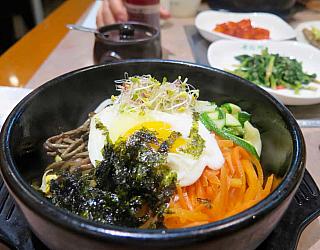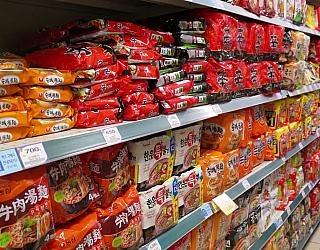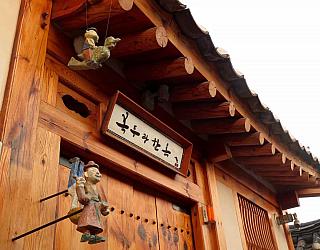NIIED – National Institute for International Education

ITTT has a mutual cooperation in place with NIIED, the government Education Ministry in South Korea, to promote international education through the EPIK teacher training program as a service to our graduates.
South Korea is a small but incredibly beautiful country, and during the 4 week TEFL you will have fantastic opportunities to experience the rich culture and history. Not only will you have the chance for local excursions, but based in Incheon, you will be less than an hour away from the lively city of Seoul on the express train.
The first week of your program includes in-depth cultural orientations, ensuring you deeply understand the Korean way of life and culture. This includes a welcome dinner, tour of the local neighbourhood and the “Grand” Palace (Gyeongbok Palace), taekwondo class and learning South Korean cookery and language. Incheon is home to Korea’s only official Chinatown, where you can try jajangmyun (noodles with black bean sauce) at the Gongwachun restaurant and for seafood you can visit the popular Sorae Pogu fish market.
Situated on the west coast, Incheon is also well known for its beaches such as Eurwangni and the local islands. Inland you will find the Grand Park, bordered by the mountains of Sangassan and Gwanmosan offering excellent hiking, biking and sledding.
special price on offer from
The School
Your TEFL course takes place at a school on Yeongjong Island just 40 minutes from downtown Seoul and while the course prepares you to teach English anywhere in the world, the cultural orientations leave you uniquely positioned to understand the role of a teacher in South Korea.
Our holistic approach involves a 1 week in-depth cultural learning experience followed by three weeks working with experienced instructors to ensure you are able to effectively manage a classroom for learners of any age and plan, develop and deliver lessons effectively and with confidence.
You will complete two full days of practical teaching at a local Korean school with your fellow course participants to ensure you’re fully prepared and confident for the real thing once you’ve graduated from the course. This includes immensely valuable feedback from your instructor on areas you’ve performed well and where you can improve.
Week 1:
Your Cultural Immersion includes elements such as:
- 6 hours of foundational language lessons
- Cultural Do’s and Don’ts
- Political History
- Socio-Economic and Religious history
- Multiple cultural excursions
- Welcome dinner with fellow program participants
Week 2:
This week typically involves learning to plan and teach conversational English, while weaving in regular grammar refreshers.
Week 3:
In week three you will focus on teaching reading and techniques to ensure you are listening to your learners of all ages and abilities.
Week 4:
The final week concentrates on classroom management and effective design of a curriculum.
The accredited course in Seoul is operated by an independent organisation that issues its own certificate on completion of the course.
Accommodation
Students typically share a double room for the duration of the course. This would be in a shared room with two separate beds with a participant of the same gender for $475 USD. We can however accommodate requests for a private room which will be double the price ($950 USD)
Facilities: A typical hotel room with an ensuite bathroom and kettle. One won't have cooking facilities like a stove or microwave but the hotel is in a great location near to grocery stores and affordable restaurants
Local amenities nearby: Include everything in close proximity such as grocery stores, restaurants, public transport (bus and subway), a library, and recreational activities such as gyms, running tracks, football field, basketball courts, and walking and hiking trails
Distance to training centre: It's a quick 5-minute walk to the training center
Course dates
2026
- 19 January - 13 February 2026
- 23 March - 17 April 2026
- 18 May - 12 June 2026
- 27 July - 21 August 2026
- 31 August - 25 September 2026
- 26 November - 20 November 2026 (three-week course)
Course fees
The total price is divided into: deposit and balance.
The deposit may be paid via a) credit card b) Paypal c) wire transfer d) Western Union.
Course balance fees for Korea are due 12 weeks prior to the start of the course. Intakes automatically close after the final payment due date. No applications received less than 12 weeks before the start of a course can be accepted.
USD 400
USD 1500
Accommodation Fees
The accommodation fees are not part of the course price and you are free to choose whichever accommodation option you prefer.
If you choose to use our accommodation, it should be paid for either by cash, PayPal or bank transfer directly to the school.
USD 475







